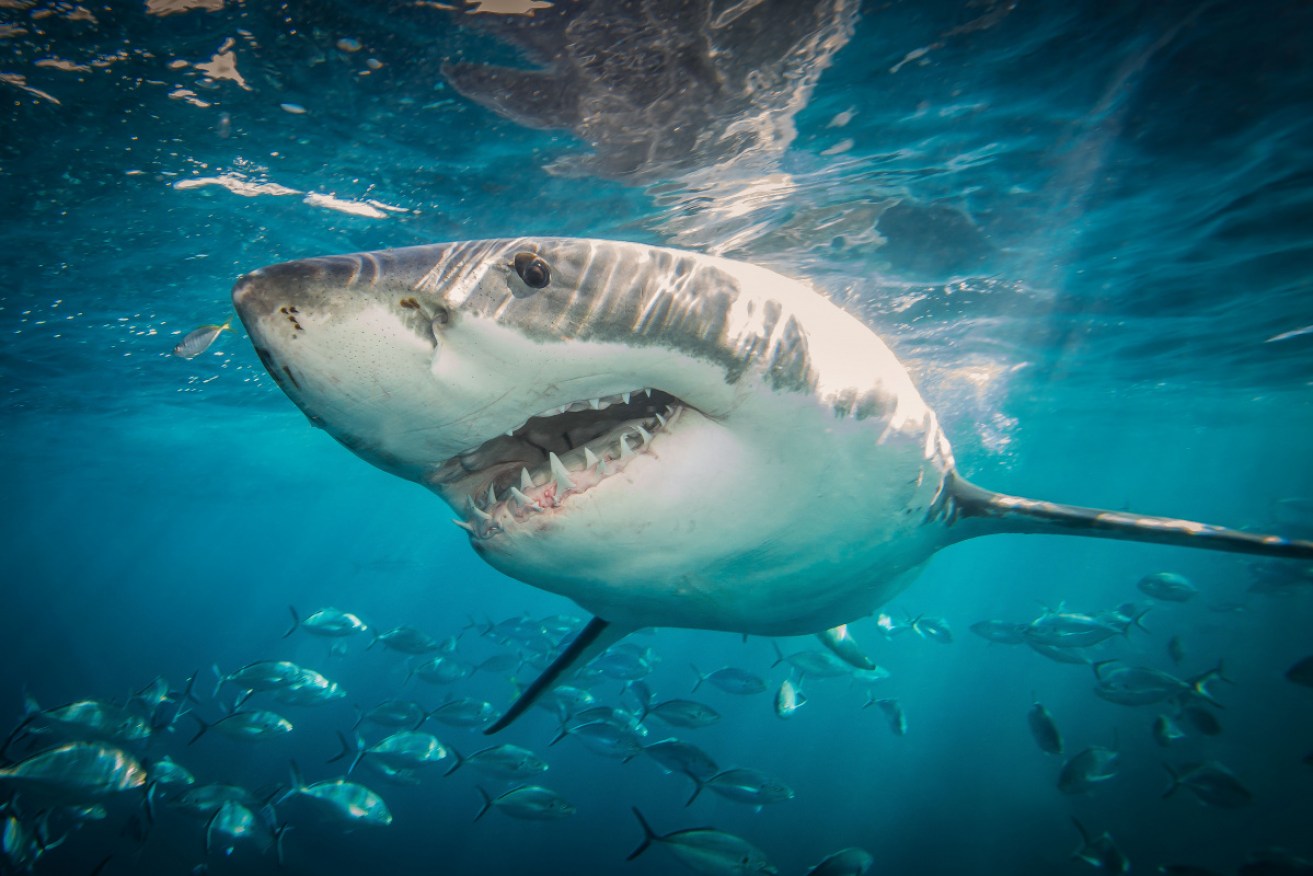Why surfers should turn to science to deter shark attacks


The mauled 11-year-old is in a serious but stable condition after being rushed to hospital. Photo: Getty
Surfers and other ocean-goers using home-made deterrents like chilli-flavoured wax or products like ‘essence of dead shark’, could be putting themselves at greater risk of shark attack, experts warn.
Meanwhile, new research from Bond University into Australian-developed deterrents found using an electric deterrent device cut the likelihood of a shark bite by up to 66 per cent.
The Bond study aims to dispel the surfer myths around repellant products, including magnets, sprays and acoustic sounds of orcas – all of which are sold without independent testing.
The work was a collaborative effort led by global engineering company Cardno, and involving Bond University shark expert Dr Daryl McPhee and Ocean Ramsey, famous for freediving with large white sharks.
“There’s obviously a lot of attention paid to shark deterrence, a lot of entrepreneurial activity, a lot of commercial investment, but most approaches haven’t actually been independently tested,” Dr McPhee told The New Daily.
“It’s important to raise the issue because, and to use an analogy, when we put on a life jacket or a seat belt we have an understanding – we don’t necessarily know all the details of testing but we know – they’ve been independently tested.
“One of the challenges it’s highlighted is with surfers having their own beliefs, and in some cases their own urban myths, so what we focus on is actually scientifically testing these approaches and we’ve found it’s another deterrent they can consider.”

Not the harrowing image you want to see ducking a wave. Photo: Getty
The study analysed the electric deterrent device, the Rpela v2, made by Ocean Guardian. It was attached to a floating test board and towed through Perth’s coastal waters.
The device works by creating a powerful three-dimensional electrical field that causes spasms, turning the sharks away.
It tracked whether sharks swam at the experiment when the device was active and non-active, how close they got, and the shark’s identity.
A total of 388 passes from seven white sharks were recorded in the 46 trials.
Most passes occurred at the surface. All sharks were males and ranged in size from 2.4 metres to 3.6 metres.
When active, the Rpela v2 significantly reduced the probability of a bite occurring from approximately 0.75 to 0.25.
The testing was carried out at Salisbury Island, south-east of Esperance, a remote hotspot for white sharks.
Dr McPhee said the findings were significant for surfers looking for an added layer of protection.
He said a shark deterrent device was a piece of safety equipment, and a product should not be able to be sold as one without independent testing.
“If you’ve got something that demonstratively doesn’t work and you think it works, you might put yourself at greater risk,” he said.
“You might not get out of the water when the shark alert goes off at a beach because you think you’ve got an extra layer of protection when in fact you don’t.
“These (electric deterrents) are worth testing because they are probably the best … type of devices for protecting surfers but not harming other marine life.”
The latest casualty in Australian waters came in early September when a man died after being bitten by a shark on the NSW north coast.
The study appeared in the Journal of Marine Science and Technology.
Why electric devices, not magnets or sprays

The Shark Shield is another electric deterrent product available in Australia. Photo: Getty
Surfers were advised to use electric deterrent devices not only because they were tested and environmentally safer, but because they only affect sharks and rays.
“There’s a family of deterrent devices which involve generating a current which sharks can detect using specialised sense organs,” Dr McPhee said.
“Sharks and rays are the only groups of animals that can detect these types of electric currents, so that means fish can happily swim around, dolphins are happy, etc.
“And it doesn’t harm the shark. It’s like turning up bad, loud music. You’re not physically harmed, but you do want to get away from it.”
Magnetic deterrent devices are common among surfers, including the shark band, but they do little to protect you from a shark targeting you.
Sharks can detect magnetic fields in the water but there is some uncertainly as to how they do so, Dr McPhee said.
“The rationale is if you have some magnets on you sharks will detect it and move away, so that’s the shark band-style product. But the fields generated are generally so small that they are not going to give you any protection.”

Dr McPhee said it was critical that all shark deterrents were tested so Australians could gauge their effectiveness. Photo: Getty
There are also acoustic deterrent devices sold that involve making the noise of a predator such as an orca, but there is no scientific evidence to suggest they work.
There is some evidence supporting deterrent sprays. Studies from the Caribbean tested canisters of shark repellant, which comprise the synthesised smell of dead sharks.
But the study was tested against smaller, less predatory reef sharks.
In Australia’s waters, the spray can actually have an adverse effect and attract our bigger sharks to you, Dr McPhee said.
“The only problem transferring to Australia is that our big sharks, tigers and whites, eat other sharks, so you don’t necessarily want to smell like something that they can scavenge,” he said.
“Then there’s other devices and approaches, like chilli-flavoured wax and a few other things that probably don’t really cut it.”








